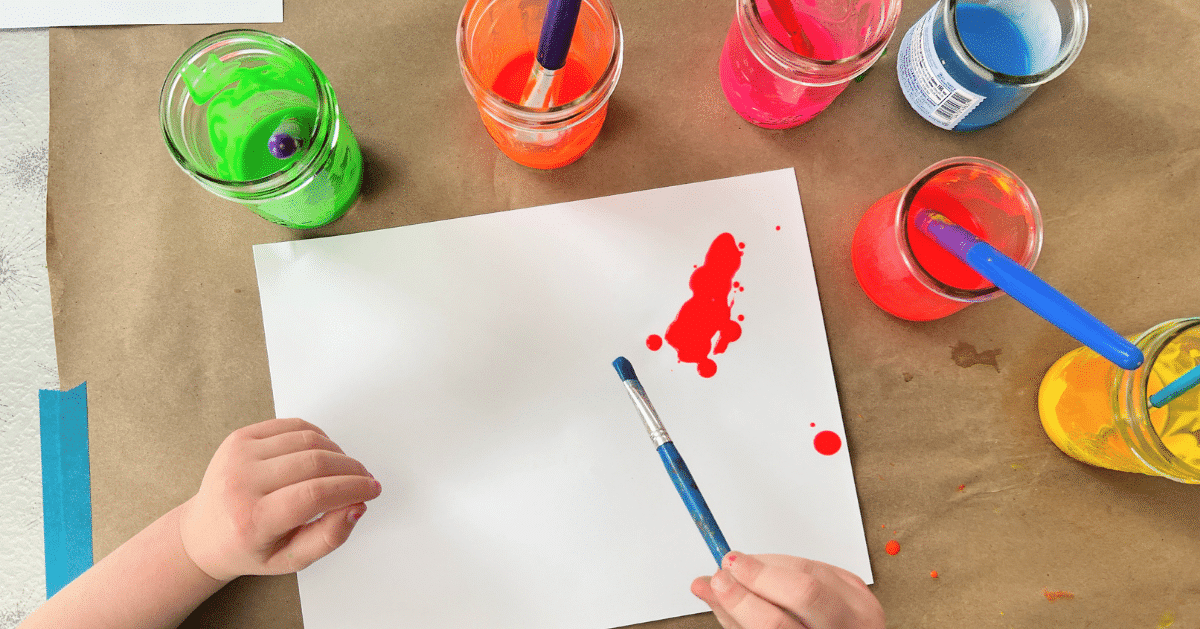
As we embark on a new year, it’s helpful to take a moment to reflect on the past, set intentions for the future, and cultivate a mindset of inspiration and possibility. One potent tool to take this pause is a New Year’s meditation—a practice that allows you to reflect, renew, and embrace the potential for positive change and inner growth. Set the stage for a year filled with intention, mindfulness, and personal evolution by dedicating some time to yourself and engaging in a soul-nourishing meditation.
What is a New Year’s meditation?
A New Year’s meditation is a powerful tool to usher in a fresh start, serving as a bridge between reflection over the past year and formulating resolutions for the coming one. This ritual can be more than just saying goodbye to the old and welcoming the new; it’s also an opportunity to consciously cultivate inner peace, boost mindfulness, and set an intention for personal growth. Meditation facilitates this inward journey, allowing the emergence of clarity and awareness essential for positive change and growth.
The benefits of New Year’s meditation
Starting with a clear mind
A clear mind is like a clean canvas, primed and ready to paint your dreams and aspirations. It allows you to visualize your goals more effectively, make rational decisions, and establish a pathway towards achieving them. Meditation helps to clear the clutter in our minds, reduce stress and anxiety, and create a sense of calm and clarity.
Starting the New Year with a clear mind bolsters your resilience and equips you with the focus needed to navigate life’s challenges, make positive changes, and stimulate inner growth. By taking the time to quiet your mind, you create space for new ideas, insights, and perspectives to emerge.
Reflection and Goal Setting
By quieting the external noise and focusing inward, you can connect with your inner wisdom and intuition, gaining a deeper understanding of your desires and purpose. Meditation facilitates a mental space where you can pause, take stock of your past achievements, and appreciate the journey you’ve undertaken thus far. In this state of focused introspection, you can identify the strategies that worked well, learn from your past experiences, and formulate plans for future improvement.
Meditating allows your mind to visualize your future aspirations without the clutter of day-to-day distractions. This helps cultivate a strong sense of purpose and direction, providing a roadmap for your journey. It encourages you to focus on the outcome and the incremental steps required to achieve your desired goals.
Stress reduction
The holiday season, while filled with joy and celebration, can also be a source of significant stress. The constant hustle and bustle, the pressure to meet expectations, and the overwhelming demands can leave us feeling drained and anxious. However, through the practice of New Year’s meditation, we can find solace and a much-needed respite from the chaos. Meditation allows us to tap into our inner selves, quieting the noise of the external world and finding a sense of calm within.
Breaking old patterns
The advent of a new year often inspires us to break free from old, unproductive patterns and habits that no longer serve our best interests. A New Year’s Meditation is a powerful tool for identifying these ingrained patterns that may have obstructed our progress toward positive change and inner growth. By creating a quiet space for introspection, meditation allows us to perceive our habitual thoughts and behaviors with heightened clarity.
This heightened awareness empowers us to consciously release these unhelpful habits, making room for cultivating new, healthier ones. It is a process of mental decluttering, where we let go of past patterns, not in alignment with our true aspirations.
Releasing negative energy
New Year’s Meditation can serve as an effective method for purging oneself of negativity that might have accumulated over the past year. By focusing on your breath and entering a state of deep relaxation, you create a space that facilitates the release or integration of negative emotions and thoughts.
Imagining negativity as dark smoke or a murky cloud dispersing from your body as you exhale is a powerful technique often used in visualization meditation. As you breathe deeply, imagine yourself drawing in positive energy, visualizing it as a warm light that fills your body. This process allows you to let go of any residual fear, anxiety, anger, or regret, replacing it with a sensation of lightness and tranquility.
Ending on a Positive Note
Ending the year with a feeling of calm, accomplishment and a positive outlook allows us to enter the New Year with enthusiasm, ready to embrace new experiences and challenges. This positive mindset catalyzes continued personal growth and development, attracting positive life changes. A New Year’s meditation fosters an atmosphere of positivity, enabling us to celebrate our achievements, appreciate our growth, and look forward to the exciting opportunities ahead.
How to practice a New Year’s meditation
This New Year’s Meditation will guide you towards embracing your true potential and creating a life filled with love, joy, and fulfillment. May this meditation serve as a gentle reminder to honor your journey, release what no longer serves you, and welcome the abundant opportunities that lie ahead. Change or adapt any part of this meditation to suit your personal preferences and needs.
1. Preparing your space
Creating a conducive environment is crucial to engage in your New Year’s Meditation effectively. First, find a quiet space where you will not be interrupted for your meditation. This could be a dedicated yoga room, a comfortable spot in your home or a quiet corner in your garden.
Make this area comfortable and inviting. Consider laying down some soft blankets or cushions, and ensuring the temperature is comfortable. Dim the lights or use soft lighting to create a calming atmosphere. You may also want to add elements to create a serene ambiance, such as candles, incense, crystals, or other meaningful objects. Remove any distractions or clutter from your meditation space to foster a sense of calm and focus. Music can also contribute to a serene environment, especially soft instrumental music or nature sounds, which can soothe the mind and help you focus.
Set a timer for your desired meditation length. This will allow you to focus solely on your meditation without constantly checking the time.
2. Setting intentions
Before you begin your practice, take a few moments to reflect on what you would like to achieve or manifest in the upcoming year. Set clear and positive intentions for personal growth, inner peace, or any specific area of your life you wish to improve. Write down these intentions on a piece of paper or in a journal, infusing them with your heartfelt desires.
3. Connect with your breath
Sit comfortably with your back straight and your hands resting gently on your lap. Close your eyes and bring your attention to your breath. Take a few deep, slow cleansing breaths, inhaling through your nose and exhaling through your mouth. As you breathe, allow your body to relax and release any tension.
Slowly shift to slow, deep diaphragmatic breathing, where you focus on breathing deeply into your belly. Inhale deeply through your nose, feeling your abdomen expand, and then exhale slowly through your nose, feeling your abdomen contract.
Notice the sensation of the air entering through your nostrils, filling your lungs, and leaving your body as you exhale. Feel the rise and fall of your chest and abdomen with each breath. If your mind wanders, gently guide it back to your breath without judgment.
Breathing plays a vital role in meditation, acting as an anchor, grounding us in the present moment. Focusing on our breath helps us center our minds, promoting deep relaxation and clarity of thought.
4. Let go and release
To let go of the past year’s hurts and disappointments, gently acknowledge any negative emotions or experiences that have weighed you down throughout the year. This could be resentment, anger, guilt, or sadness. Understand that holding on to these feelings only hinders your personal growth and prevents you from fully embracing the opportunities that lie ahead.
Visualize yourself holding a balloon in your hand, representing all the negativity you wish to release. With each exhale, imagine blowing all those negative emotions into the balloon. Watch as the balloon fills up with this energy, becoming bigger and bigger. When you feel ready, take a final deep breath, and on your exhale, let go of the balloon. Observe it floating away, carrying all your past burdens with it. Allow yourself to feel a sense of relief and liberation as you release these emotions.
5. Use Affirmations or Visualization
Affirmations and visualization are powerful tools for manifesting change and creating a positive vision for the future. Affirmations are positive statements you repeat to yourself, affirming your ability to achieve your goals and create your desired life.
To use affirmations in your New Year’s meditation, identify what you want to achieve or the change you want to manifest. Then, create a positive statement that affirms this desire as if it’s already a reality. For example, if your goal is to cultivate more self-love, your affirmation could be “I love and accept myself exactly as I am.” Repeat this affirmation to yourself during meditation, truly feeling the emotions and beliefs behind the words.
Visualization involves creating a vivid mental image of your desired outcome. For your New Year’s meditation, you might visualize yourself embodying the change you wish to manifest. Imagine what it would feel like, look like, and sound like. Engage all your senses in this visualization to make it as realistic as possible.
6. Close with gratitude
Gratitude is a powerful way to end your meditation session, creating a positive mindset that extends beyond your clarity through mindfulness practice and daily life. To cultivate this attitude of thankfulness, take a moment to acknowledge the opportunity and time you’ve dedicated to this act of self-growth and self-care. Appreciate the peace and insights from the healthy practices and express gratitude for your commitment to self-improvement.
As you prepare to conclude your session, place your hands over your heart and take a few deep, calming breaths. Visualize your heart space glowing with warmth and love, representing all the positivity and growth you have invited during your meditation.
Final thoughts
A meditation practice is a powerful tool to cultivate mindfulness, self-awareness, and inner peace. This meditation can serve as a guiding light, helping you set intentions, clarify your goals, and manifest positive changes in your life. Embrace the opportunity to begin the new year with a renewed sense of purpose, clarity, gratitude, inner strength, and joy.





